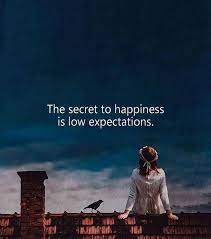By Ann Saad
Keeping the recent rush of write ups on Delhi Public School (DPS) abaya row in mind, let’s put the things in perspective. Kashmir isn’t a normal place, so let’s not try hard to normalize a situation or a place by keeping a very narrow vision.
DPS came to Kashmir in 2003 and I was one among the first students to join the school. My parents had waited so long for the school to finally open. The craze of nyebrem Indian teachers teaching their kids had gripped my parents.
Now, this is problematic.
Because for some very weird reason, the Kashmiri parents had or maybe still have this perception that Indian teachers are more educated, skilled or experienced than Kashmiri teachers. This made them believe that their children would be in better hands in DPS. Well, that shattered very soon because DPS have zero teachers from India. Though that was respite, but the idea of the school being very Indian in spirit was niggling.
In a recent article on DPD row by one of my ex-teachers, the school was praised for its surveillance strategies, which is a tragedy, an Orwellian tragedy, in fact!
Luring the Kashmiri people with its infrastructure, yellow buses and use of updated technology doesn’t account for brilliant education. It in fact is just a very simple move of a capitalist mind. It’s a money minting process: Invest a little and earn in millions.
So, let’s demystify, or for that matter, deconstruct the institution a bit further. The truth is DPS is just like any other school around. But then this school has an edge.
This school came to Kashmir when the militancy in valley had waned to some extent and the memories of the 90s had started fading. Then, the new generation had very little knowledge of the conflict — especially of the gory decade that had gone by. All this was a perfect timing to Indianise the Kashmiris.
Ensuring that every single student sings the Indian national anthem in the early morning assemblies daily and punishing those who wouldn’t lip sync was the first step of forceful assimilation. Discussion of any sort of politics was strictly prohibited in the classrooms. This left a large section of students from DPS oblivious to the Kashmir conflict to this date.
And not to forget the forceful thrusting of the Hindi language on students who prior to that had absolutely no knowledge of the language. Suddenly they were forced to read and write the language. This had a serious effect on students who very comparatively weak in studies because learning a new language at the age of 11, 12 or 13 along with juggling seven other subjects had a traumatic effect on many students. The weaker ones had to suffer even more. This shoving of an alien language to the students was another tactic of assimilation, which was received by us without any real resistance.
The school focused on the extra-curricular activities by making students participate in various competitions on a regional and national level. But the selection of these students was mostly based on favouritism and nepotism. Such students, either having their parents in the school as teachers or in the administration department or belonging to influential families or the ever present sycophants were selected again, and again. And hardly anyone who actually deserved a chance hardly got one, unless they put up a fight.
DPS, let me tell you, is not different from any other school. The infrastructure and the use of updated technologies sure are a great way of luring the students. But what happens inside the classroom remains the same to what happens in every other school.
Students are humiliated, beaten and discouraged on a daily bases. Post mortem of the books to cover syllabus in time without giving students any real knowledge is very much in vogue in DPS. Forging the internal marks by giving more to favourites and giving lesser to others continue to remain a practice.
Students who give different opinion or who don’t adhere to the ideologies of the school administration or the teachers are shamed. And this partiality is most visible when the papers are evaluated.
So, what makes DPS “the best”? I say: Nothing!
DPS is not a secular school. It is an Indian school spreading the Indian propaganda of ‘All is well in the paradise land’ and that ‘India is our country’.
Up until 2008, I was completely oblivious to the Kashmir conflict. I considered myself an Indian, supported the Indian team during cricket matches and sung the Indian national anthem with pride every morning. Then 2008 happened and I was forced to stay indoors for months with army men outside every gate in my colony, not allowing us to come out of our own houses. This shook me completely.
Daily news of everyday killings, journalists beaten to pulp, no ration in houses anymore, banning of the Kashmir media — all this made me realize that I am living under occupation.
It was only after this, I stopped feeding on the Indian propaganda my school fed me for years. I started reading on Kashmir, its history of occupation, the heavy militarization and brutal incidents like Kunan Poshpora.
I was shattered but I had finally woken up and there was no going back now. The school had failed in its mission.
The abaya controversy in which a teacher was given a choice of either abandoning her dress (which she feels comfortable in because it doesn’t comply to the rules of the school) or leave her job is another way of forcing the Kashmiris to adhere to the ideology of the unknown.
Dressing is a personal choice of an individual and a person usually chooses to wear whatever he/she feels comfortable in. Now, I do not really understand how this threatens the so-called invisible secular nature of the school.
If someone feels comfortable in certain attire, which they aren’t allowed to follow, I see it as a threat to the individual’s choice of personal freedom. If the principal of the school can wear a Sari which can also have religious connotations, why can’t a woman of Muslim faith who practices her religion openly wear a dress she feels comfortable in and at the same time makes her feel closer to her religion?
This is not only bizarre but at the same time makes one question the secular nature of the school which many people contest. I see it as a communal move to vilify a certain religion and forcing people to accept the code of conduct without giving them the freedom to question it. Doesn’t this threaten the freedom of choice and the freedom of expression of the people in that school, otherwise upheld by Indian constitution?
Isn’t it just another way of forceful assimilation? I say, it is.
An Alumna of DPS, Ann Saad is pursuing Masters in Peace and Conflict from Jamia Millia Islamia. (Views expressed in this article are author’s own.)





